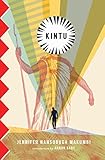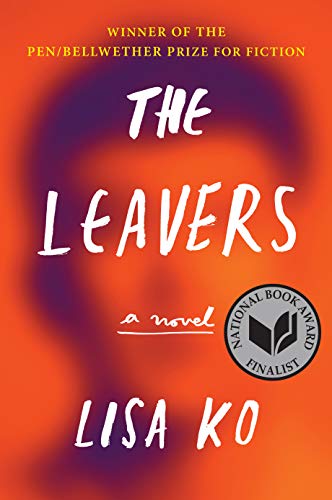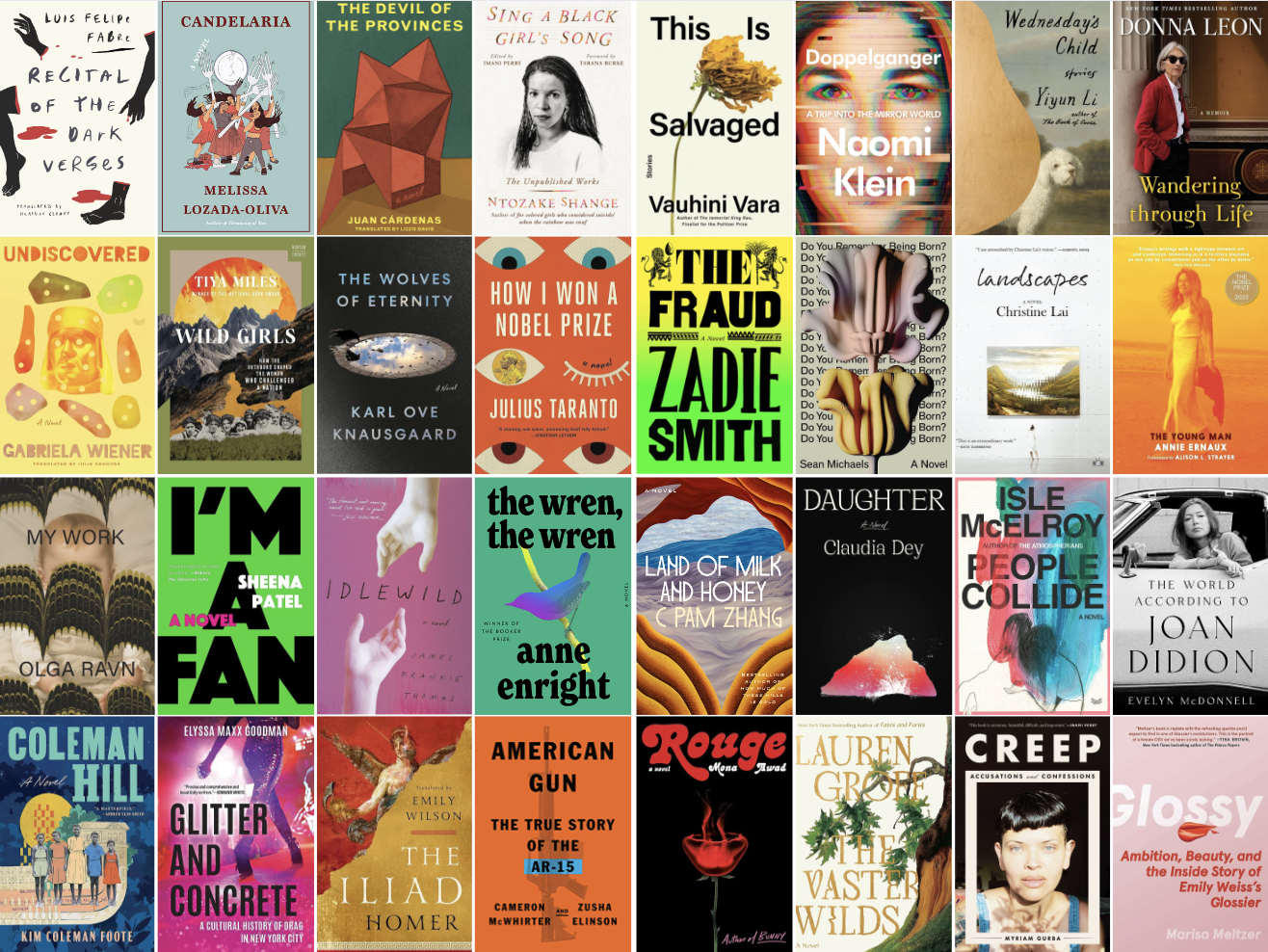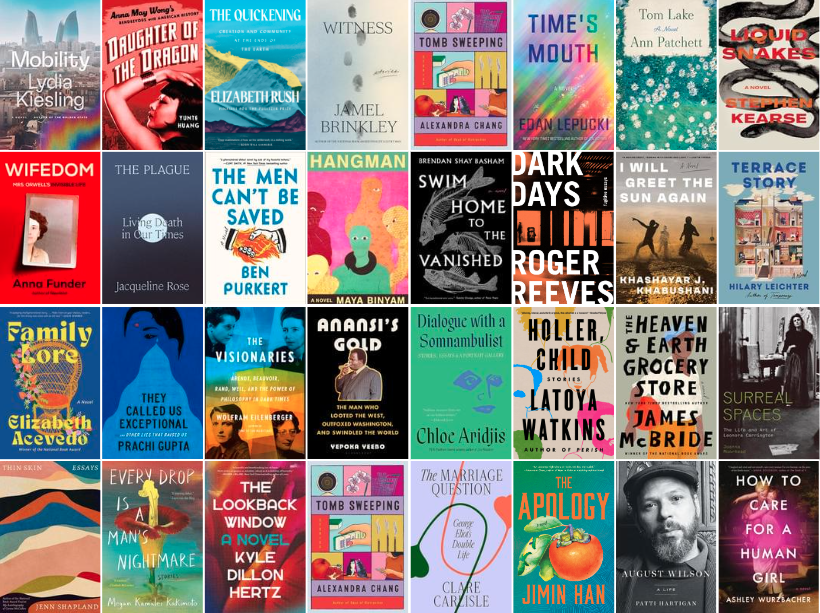We wouldn’t dream of abandoning our vast semi–annual Most Anticipated Book Previews, but we thought a monthly reminder would be helpful (and give us a chance to note titles we missed the first time around). Here’s what we’re looking out for this month. For more May titles, check out the Great First-Half 2017 Preview, and let us know what you’re looking forward to in the comments.
 Men Without Women by Haruki Murakami: The seven stories in Murakami’s new collection concern the lives of men who, for one reason or another, find themselves alone. In “Scheherazade,” a man living in isolation receives regular visits from a woman who claims to remember a past life as a lamprey; in “Yesterday,” a university student finds himself drawn into the life of a strange coworker who insists that the student go on a date with his girlfriend. (Emily)
Men Without Women by Haruki Murakami: The seven stories in Murakami’s new collection concern the lives of men who, for one reason or another, find themselves alone. In “Scheherazade,” a man living in isolation receives regular visits from a woman who claims to remember a past life as a lamprey; in “Yesterday,” a university student finds himself drawn into the life of a strange coworker who insists that the student go on a date with his girlfriend. (Emily)
 Between Them: Remembering My Parents by Richard Ford: *SIREN* This is the first work of nonfiction by the Pulitzer Prize-winning author of the extraordinary Bascombe novels. The book, a memoir, explores the lives of Ford’s Arkansas-born mother and father as people and parents, and illustrates a kind of mid-century American life along the way. Ford recently appeared in The Guardian with this recollected gem, which we may assume is exemplary: “Where I was concerned, my mother at best only tolerated (reluctantly) my high school friends, and seemed to prefer I not have any. It was just simpler for her. She consistently disparaged them as if they were criminals (indeed, some were), and would often drive them out of the house because of something they’d said (or she thought they’d said) – usually without ever telling me why.” (Lydia)
Between Them: Remembering My Parents by Richard Ford: *SIREN* This is the first work of nonfiction by the Pulitzer Prize-winning author of the extraordinary Bascombe novels. The book, a memoir, explores the lives of Ford’s Arkansas-born mother and father as people and parents, and illustrates a kind of mid-century American life along the way. Ford recently appeared in The Guardian with this recollected gem, which we may assume is exemplary: “Where I was concerned, my mother at best only tolerated (reluctantly) my high school friends, and seemed to prefer I not have any. It was just simpler for her. She consistently disparaged them as if they were criminals (indeed, some were), and would often drive them out of the house because of something they’d said (or she thought they’d said) – usually without ever telling me why.” (Lydia)
 Woman No. 17 by Edan Lepucki: Our own Lepucki has always had keen insight into the psyches of women — particularly so-called “difficult” protagonists. Her first novel, California, may have been about a family surviving the end of society, but it was really a post-apocalyptic domestic drama full of sharp wit and observations. Her sophomore effort is more grounded in reality but equally cutting. Lady is a writer struggling to raise her two kids and finish her memoir when she hires S. to help, but the artist becomes more than just a nanny for Lady’s eldest troubled son. (Tess M.)
Woman No. 17 by Edan Lepucki: Our own Lepucki has always had keen insight into the psyches of women — particularly so-called “difficult” protagonists. Her first novel, California, may have been about a family surviving the end of society, but it was really a post-apocalyptic domestic drama full of sharp wit and observations. Her sophomore effort is more grounded in reality but equally cutting. Lady is a writer struggling to raise her two kids and finish her memoir when she hires S. to help, but the artist becomes more than just a nanny for Lady’s eldest troubled son. (Tess M.)
 No One Can Pronounce My Name by Rakesh Satyal: Satyal’s novel takes place in a suburb near Cleveland and tells the story of Harit and Ranjana, who are both Indian immigrants experiencing loss. Harit’s sister has passed away and he’s caring for his mother; Ranjana’s son has left to college and she’s worrying her husband is having an affair. These two characters form a friendship amidst grief and self-discovery in a novel that is both heartfelt and funny. (Zoë)
No One Can Pronounce My Name by Rakesh Satyal: Satyal’s novel takes place in a suburb near Cleveland and tells the story of Harit and Ranjana, who are both Indian immigrants experiencing loss. Harit’s sister has passed away and he’s caring for his mother; Ranjana’s son has left to college and she’s worrying her husband is having an affair. These two characters form a friendship amidst grief and self-discovery in a novel that is both heartfelt and funny. (Zoë)
 The Purple Swamp Hen by Penelope Lively: Across her many wonderful books, Lively has ranged from low farce (How It All Began) to high feeling (Moon Tiger), from children’s literature to a memoir on old age. Now comes her fourth story collection, the first in 20 years. The title story draws on reliably entertaining source material: the meretricious lives of Roman rulers. Robert Graves turned to a stammering Claudius for his narrator, Lively to a less exalted personage: a purple swamp hen. Other stories involve trouble: a husband and wife working their way out of it, and a betrayed wife doing her best to cause some for her husband. (Matt)
The Purple Swamp Hen by Penelope Lively: Across her many wonderful books, Lively has ranged from low farce (How It All Began) to high feeling (Moon Tiger), from children’s literature to a memoir on old age. Now comes her fourth story collection, the first in 20 years. The title story draws on reliably entertaining source material: the meretricious lives of Roman rulers. Robert Graves turned to a stammering Claudius for his narrator, Lively to a less exalted personage: a purple swamp hen. Other stories involve trouble: a husband and wife working their way out of it, and a betrayed wife doing her best to cause some for her husband. (Matt)
 A Good Country by Laleh Khadivi: This is a follow-up to The Age of Orphans and The Walking, which respectively tell the story of a conscripted Iranian Kurd during the 1920s, and his son, a young man who comes to California following the Revolution. A Good Country follows the latter’s son, a teen surfer in Laguna Beach who becomes radicalized through a complex process of alienation from his community, spurred by global and local events, and eventually travels to Syria with his girlfriend. (Lydia)
A Good Country by Laleh Khadivi: This is a follow-up to The Age of Orphans and The Walking, which respectively tell the story of a conscripted Iranian Kurd during the 1920s, and his son, a young man who comes to California following the Revolution. A Good Country follows the latter’s son, a teen surfer in Laguna Beach who becomes radicalized through a complex process of alienation from his community, spurred by global and local events, and eventually travels to Syria with his girlfriend. (Lydia)
 The Dinner Party by Joshua Ferris: The book after Ferris’s Man Booker shortlisted To Rise Again at a Decent Hour is a collection of short stories. The title story, first published by The New Yorker in 2008, is about a couple who invite a boring couple over to dinner (“even their goddam surprises are predictable,”) only to be surprised when the boring couple manage to surprise by not showing up. The collection pulls together stories that promise the, “deeply felt yearnings, heartbreaking absurdity, and redemptive humor of life,” for which Ferris is so well known. (Claire)
The Dinner Party by Joshua Ferris: The book after Ferris’s Man Booker shortlisted To Rise Again at a Decent Hour is a collection of short stories. The title story, first published by The New Yorker in 2008, is about a couple who invite a boring couple over to dinner (“even their goddam surprises are predictable,”) only to be surprised when the boring couple manage to surprise by not showing up. The collection pulls together stories that promise the, “deeply felt yearnings, heartbreaking absurdity, and redemptive humor of life,” for which Ferris is so well known. (Claire)
 The Leavers by Lisa Ko. Ko’s debut novel has already won the 2016 Pen/Bellwether Award for Socially Engaged Fiction, a prize created and selected by Barbara Kingsolver. The contest awards a novel “that addresses issues of social justice and the impact of culture and politics on human relationships,” and Ko’s book certainly fits that laudable description. The novel is the story of Deming Gao, the son of a Chinese-American immigrant mother who, one day, never returns home from work. Adopted by white college professors, Deming is renamed and remade in their image — but his past haunts him. (Nick R.)
The Leavers by Lisa Ko. Ko’s debut novel has already won the 2016 Pen/Bellwether Award for Socially Engaged Fiction, a prize created and selected by Barbara Kingsolver. The contest awards a novel “that addresses issues of social justice and the impact of culture and politics on human relationships,” and Ko’s book certainly fits that laudable description. The novel is the story of Deming Gao, the son of a Chinese-American immigrant mother who, one day, never returns home from work. Adopted by white college professors, Deming is renamed and remade in their image — but his past haunts him. (Nick R.)
 Kintu by Jennifer Nansubuga Makumbi: First published in Kenya to wide acclaim; now published stateside by Oakland-based newcomer Transit Books with an introduction by New Inquiry editor Aaron Bady. Kintu is a retelling of Ugandan history over centuries through a single family. A starred Publishers Weekly review calls it “a masterpiece of cultural memory.” Book Riot put it thus: “passionate, original, and sharply observed, the novel decenters colonialism and makes Ugandan experience primary.” (Lydia)
Kintu by Jennifer Nansubuga Makumbi: First published in Kenya to wide acclaim; now published stateside by Oakland-based newcomer Transit Books with an introduction by New Inquiry editor Aaron Bady. Kintu is a retelling of Ugandan history over centuries through a single family. A starred Publishers Weekly review calls it “a masterpiece of cultural memory.” Book Riot put it thus: “passionate, original, and sharply observed, the novel decenters colonialism and makes Ugandan experience primary.” (Lydia)
 My Life with Bob by Pamela Paul: The editor of The New York Times Book Review has kept a “book of books,” or “Bob,” as she calls it, for twenty-eight years. This catalogue of things read has, naturally, taken on a life of its own, coming to serve as a reminder of where its author was in the world and in her career or personal life, and what a particular book had to say to her at that particular moment. Kirkus calls it “a thoughtfully engaging memoir of a life in books.” (Lydia)
My Life with Bob by Pamela Paul: The editor of The New York Times Book Review has kept a “book of books,” or “Bob,” as she calls it, for twenty-eight years. This catalogue of things read has, naturally, taken on a life of its own, coming to serve as a reminder of where its author was in the world and in her career or personal life, and what a particular book had to say to her at that particular moment. Kirkus calls it “a thoughtfully engaging memoir of a life in books.” (Lydia)
 Isadora by Amelia Gray. The endlessly inventive Gray (whose story “Labyrinth” from The New Yorker is a gem) creates a fictional interpretation of Isadora Duncan, once described as the “woman who put the Modern into Modern Dance.” A dancer who mixed the classical, sacred, and sensual, Duncan is the perfect subject matter for Gray; if a writer can expertly resurrect the Theseus myth at a small-town fair, then she can do justice to a life as inspiring — and tragic — as Duncan’s. (Nick R.)
Isadora by Amelia Gray. The endlessly inventive Gray (whose story “Labyrinth” from The New Yorker is a gem) creates a fictional interpretation of Isadora Duncan, once described as the “woman who put the Modern into Modern Dance.” A dancer who mixed the classical, sacred, and sensual, Duncan is the perfect subject matter for Gray; if a writer can expertly resurrect the Theseus myth at a small-town fair, then she can do justice to a life as inspiring — and tragic — as Duncan’s. (Nick R.)
 One Day We’ll All Be Dead and None of This Will Matter by Scaachi Koul. Ah, the current frontrunner for Most Relatable Title of the Year. The Canadian writer’s debut essay collection is “about growing up the daughter of Indian immigrants in Western culture, addressing sexism, stereotypes, and the universal miseries of life.” Fans of her work online will be eager to see her on the printed page. Canadian journalist (and Koul’s former journalism professor) Kamal Al-Solaylee said of her writing, “To me, she possesses that rarest of gifts: a powerful, identifiable voice that can be heard and appreciated across platforms and word counts.” (Elizabeth)
One Day We’ll All Be Dead and None of This Will Matter by Scaachi Koul. Ah, the current frontrunner for Most Relatable Title of the Year. The Canadian writer’s debut essay collection is “about growing up the daughter of Indian immigrants in Western culture, addressing sexism, stereotypes, and the universal miseries of life.” Fans of her work online will be eager to see her on the printed page. Canadian journalist (and Koul’s former journalism professor) Kamal Al-Solaylee said of her writing, “To me, she possesses that rarest of gifts: a powerful, identifiable voice that can be heard and appreciated across platforms and word counts.” (Elizabeth)
 Season of Crimson Blossoms by Abubakar Adam Ibrahim: Newly published in the United States by Cassava Republic Press, this debut novel won Nigeria’s largest award — the $100,000 NLNG prize awarded every four years. The novel received a starred review in Publishers Weekly, with the reviewer describing the book as an “excellent first novel [that] tells of the unlikely romance between a Muslim widow and a dope-dealing street tough amidst the troubles that each faces.”(Lydia)
Season of Crimson Blossoms by Abubakar Adam Ibrahim: Newly published in the United States by Cassava Republic Press, this debut novel won Nigeria’s largest award — the $100,000 NLNG prize awarded every four years. The novel received a starred review in Publishers Weekly, with the reviewer describing the book as an “excellent first novel [that] tells of the unlikely romance between a Muslim widow and a dope-dealing street tough amidst the troubles that each faces.”(Lydia)
 Homing Instincts: Early Motherhood on a Midwestern Farm by Sarah Menkedick: An essay collection on motherhood, motherlands, and home from the editor of Vela, a magazine that publishes travel writing by women. Menkedick’s journalism has appeared in many outlets (read her latest on “The Making of a Mexican-American Dream” in Pacific Standard); these essays are written in a meditative, diaristic register, as she trades a peripatetic existence to return to her family farm in Ohio and prepare for the birth of her first child. (Lydia)
Homing Instincts: Early Motherhood on a Midwestern Farm by Sarah Menkedick: An essay collection on motherhood, motherlands, and home from the editor of Vela, a magazine that publishes travel writing by women. Menkedick’s journalism has appeared in many outlets (read her latest on “The Making of a Mexican-American Dream” in Pacific Standard); these essays are written in a meditative, diaristic register, as she trades a peripatetic existence to return to her family farm in Ohio and prepare for the birth of her first child. (Lydia)






















